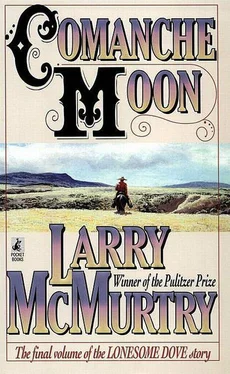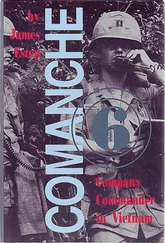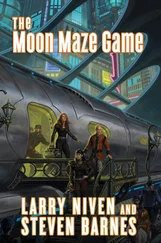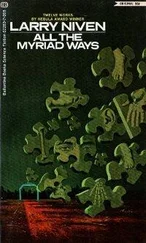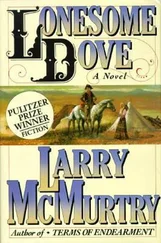That was not a thought likely to bring comfort to the fat new captives. As soon as Ahumado had inspected the booty he had the four prisoners lined up in the center of the camp. He did not speak to them or question them; he just made them stand there, through the hot hours of a long day. The people of the village stared at them, as they went about their work.
Vaqueros or pistoleros who rode in from time to time stared at them.
Scull judged the captives to be gentry of some sort--theirthe dusty garments had once been expensive. Provincial gentry, perhaps, but still from a far higher sphere than the peasants who peopled the camp. The prisoners were used to being pampered; they spent their lives sitting, eating, growing fatter. They were unaccustomed, not merely to being prisoners, but to being required to stand up at all. They were too scared to move, and yet they longed to move. They were offered neither food nor drink. Mu@noz, a thin man with a pocked face, was clearly proud of his catch. He stood close to them, waiting for Ahumado's order. The standing was a torture in itself, Scull observed. In the afternoon the woman, desperate, squatted and made water; she was well concealed behind heavy skirts but still Mu@noz laughed and made a crude joke.
Later the three men made water where they stood, in their pants.
Scull watched Ahumado--he wanted to know what the old man would do with his prize catches.
The old skinner, Goyeto, sat beside him, clicking his finely sharpened knives, one of them the knife that had taken off Scull's eyelids.
A little before sundown, trembling with fatigue, the woman passed out. She simply fell facedown--in a faint, Scull supposed.
Ahumado did not react. Mu@noz had just filled his plate with food; he went on eating.
A few minutes later the three men were prodded at knifepoint to the edge of the pit of snakes and scorpions and pushed in. The bottom of the pit was in darkness by this time. The captives had no idea how deep the pit was. They were merely led to the edge of a hole and pushed off the edge. All of them screamed as they fell, and two of them continued screaming throughout the night. One of the men screamed that his leg was broken. He pleaded and pleaded but no one listened. The peasants in the camp made tortillas and sang their own songs. Scull decided that the third captive must have broken his neck in the fall--there were only two voices crying out for help.
In the morning, when Ahumado and Goyeto went to look in the pit, Scull heard the old skinner complaining.
"I thought you were going to let me skin one of them," he said.
Ahumado ignored the complaint--he usually ignored Goyeto, who complained often. He stood on the edge of the pit, looking down at the captives and listening to them beg him and plead with him; then he returned to his blanket.
When an old woman brought Scull a little coffee and two tortillas, he asked her about the men in the pit. He had noticed several of the women peeking in.
"Is one of the men dead?" he asked.
"S@i, dead," the old woman said.
The woman who fainted lay through the night in the place she had fallen. It had grown cold; Scull noticed that someone had brought her a blanket during the night. She was not tied. After the sun had been up awhile the woman rose and hobbled hesitantly over to one of the little campfires. The poor women of the camp made a place for her and gave her food. She thanked them in a low voice. The women did not respond, but they allowed her to sit by the fire.
Ahumado took no further interest in her. A week later, when all three of the men in the pit were dead, the woman was still there, unmolested, eating with the women of the camp.
When Blue Duck saw that his father was angry, he thought it might be because of the captive woman. The woman, who was young and frail, had been found dead that morning; but in fact she had been sickly when they took her. There had been some beating and raping but not enough to kill her. She had been sick all along, spitting blood night after night on the trail--now she had died of her sickness, which was not his doing or his fault.
As a chief, Buffalo Hump had always been touchy about the matter of captives; he expected to control the disposal of all captives. He might order them tortured or killed, he might sell them into slavery with another tribe, or he might let them live and even on occasion treat them well. The fate of a captive brought to Buffalo Hump's camp depended on reasoning Blue Duck did not understand. Even though he felt blameless in the matter of the dead woman, he was also scared. Everyone feared Buffalo Hump's anger, andwith good reason.
The ^ws his father said, though, shocked him. They were not what he had expected, not at all.
"You should have left Famous Shoes alone, as I ordered," Buffalo Hump said. "Now you have to leave the tribe. You can take five horses but you cannot come back to my camp again. If you do I will kill you myself." At first Blue Duck could not believe his father meant what he was saying. Was he going to banish him from the tribe because of a little foolery with a Kickapoo tracker? The Kickapoo had not even been harmed. Blue Duck had fought bravely on the great raid, killing several Texans in close combat. No young warrior had done better on the great raid, or fought more bravely.
He said as much, but Buffalo Hump merely stood and looked at him, a chill in his eye.
"We didn't hurt the Kickapoo," Blue Duck said. "We merely teased him a little. I thought Slow Tree might want him but he didn't so we let him go." Buffalo Hump didn't change expression.
He was not interested in arguments or explanations.
He had his big lance in his hand.
"Slow Tree heard me tell you to leave the Kickapoo alone," Buffalo Hump said.
"He did not want to assist you in your disobedience.
Now I am telling you to go. You have never been obedient and I have no time to argue with you or to correct your ways. If you stay I will kill you soon, because of what is in you that will not obey. You have courage but you are rude. Take the five horses and go away now. Any warrior who sees you near this camp after today has a duty to kill you." Blue Duck had not expected such a terrible judgment to fall on him so quickly. Yet it had fallen. Though he didn't really like many people in their band, it was the camp where he had always lived. He had always been where the tribe was; his roaming had seldom lasted more than a week. When he could not kill game there would be food in the camp. He felt a terrible anger at the Kickapoo, for having brought such a judgment on him. The next time he saw Famous Shoes he would kill him, and he would also like to kill Slow Tree, the fat chief who had been unwilling to torture Famous Shoes merely because Buffalo Hump had forbidden it.
But he could not think much about such things, not then, when his father still stood before him. He had his rifle in his hand; perhaps he should shoot his father right there. But he didn't shoot, or do anything at all. As always, when confronting his father, he felt a weakness in his legs and his belly. The weakness paralyzed him. He knew that if he tried to raise his gun and shoot, Buffalo Hump would be quicker. His father would shove the big lance into him. Blue Duck thought of murder but did nothing.
Buffalo Hump watched his son for a minute and then turned away. A little later he saw the boy ride out to the horse herd, to select his five horses. He looked dejected, but Buffalo Hump did not relent. He had returned home tired, only to have to listen half the night to stories of Blue Duck's bad behaviour.
The boy had beaten Hair On The Lip severely, though he had no right to. Hair On The Lip was still sore and could not move well.
Also, Blue Duck had followed Lark when she went into the bushes to make water, and had spoken to her rudely. Also he had raced a fine young horse that belonged to Last Horse's father. In the race he put the horse off a cutbank and it broke both its front legs. Of course it had to be killed and eaten; the old man was indignant and wanted a high price for the horse that had been lost.
Читать дальше
